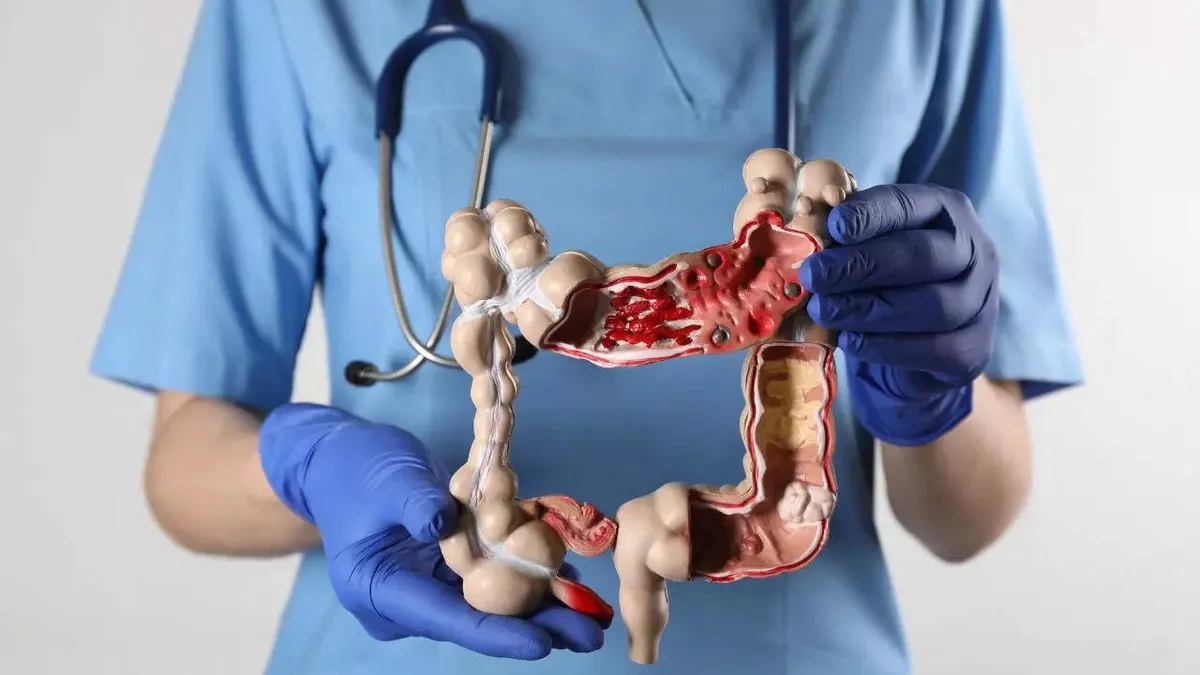
Colorectal cancer is projected to result in a staggering 1.6 million deaths and 3.2 million new cases annually by 2040, according to the World Health Organization. This marks an alarming increase of 73% from current statistics, making it the second leading cause of cancer-related deaths worldwide. The importance of early detection cannot be overstated, as it plays a critical role in improving survival rates and treatment outcomes.
Colon cancer is characterized by the uncontrolled growth of cells in the colon, which is the first and longest segment of the large intestine. This type of cancer falls under the umbrella of colorectal cancer, which affects the colon and rectum. Dr. Emmanuel Aguh, a board-certified family medicine physician based in the United States, emphasizes the urgent need for awareness and screening, especially as younger individuals are increasingly diagnosed with this disease.
Dr. Aguh recently reacted to a poignant video of a woman diagnosed with colon cancer at the young age of 31. "At 31, being diagnosed with colon cancer is something no one expects. My heart goes out to her and everyone who’s faced this," he expressed in an Instagram video. This highlights the critical need for vigilance regarding colon cancer symptoms, regardless of age.
The physician advocates for a specific test that can potentially save lives: the colonoscopy. "I know they sound scary, but hear me out," he urges. "Colon cancer is a major killer, but it doesn't have to be. A colonoscopy can catch it early, and early detection means significantly better chances of beating it." This procedure allows doctors to identify and remove precancerous polyps before they develop into more serious conditions.
For those apprehensive about undergoing a colonoscopy, Dr. Aguh offers reassurance. "I get it, the idea of a colonoscopy can be intimidating, but here's the truth: the procedure is usually performed under sedation, so you won't feel a thing. You sleep and wake up." He acknowledges that while the procedure may be uncomfortable, it is a small price to pay for a test that could ultimately save a life.
While colonoscopies are vital for detecting colon cancer, the question arises: should everyone undergo this procedure? "If you're over 45, you need to get screened," Dr. Aguh advises. "And if you have higher risk factors, you might need to start even earlier." He encourages individuals to consult their doctors about screening as part of their health evaluations.
Dr. Aguh stresses the importance of not letting fear or misinformation deter individuals from seeking necessary screenings. "Talk to your doctor and schedule a colonoscopy if you're due for one. Trust me, your future self will thank you." This proactive approach to health can be life-saving and is essential in the fight against colon cancer.
In summary, understanding the risks associated with colorectal cancer and the importance of early detection through colonoscopies is crucial. By prioritizing regular screenings and being vigilant about changes in your body, you can take significant steps towards safeguarding your health.